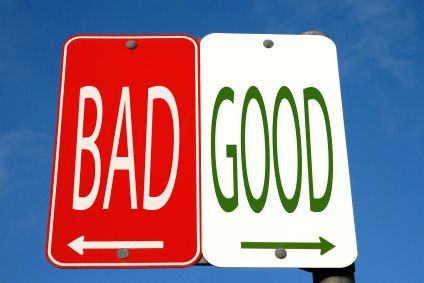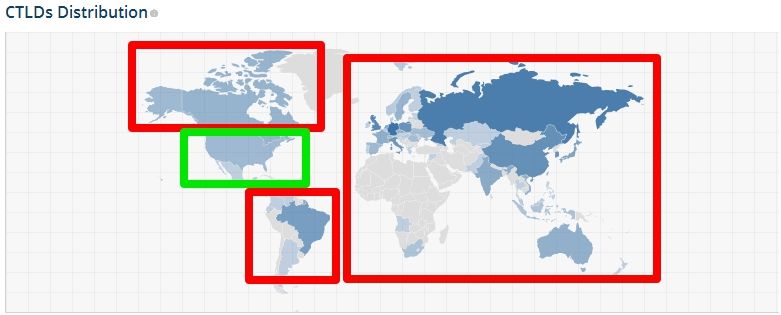Negative SEO: Have You Been a Victim Of Nefarious SEO Tectics
Recently, our Chicago SEO clients came to us with a new, and expected problem. Thanks to Google's desire to stop SEO spamming and farming, we now have a new problem. Negative SEO is happening and it’s something that can be used against your business at any time, no matter what industry you are in. This post will help you quickly identify if you’ve been a victim of negative SEO and provides tips on how to overcome it. O
Good SEO vs. Negative SEO
There’s good(positive) SEO and then there’s assassin (negative) SEO. Just like a good comic book character, the super power of SEO can be used for dark purposes; in the same way, negative SEO can be used nefariously and refers to the worst kind of SEO possible:
Negative SEO - The intentional act of over-optimizing or spamming a site in order to lower its rankings in search results.
Good SEO is a highly ethical practice and is based solely on hard work for a strong output. When it’s employed honestly, it helps quality sites with great content to establish well-deserved rankings through following developer best practices and Google’s quality guidelines. It’s also ethical when used to help well-intentioned sites overcome technical barriers such as unintentional duplicate content, crawlability, page speed and other issues.

How Does Negative SEO Occur?
Negative SEO is done primarily through link spamming and farming, usually through Fivrr and SEOClerks gigs. For example, someone may pay an off-shore firm to build 10,000+ links to your site using a key phrase your site is targeting. Please note: if your current agency is doing this with the belief this is going to improve rankings, cancel immediately or you may experience traffic declines similar to this:

How to Tell if You’ve Been Targeted With Negative SEO
Spotting negative SEO is fairly obvious if you’ve never intentionally built links or targeted specific keywords through spam bombing. If you have built links manually through the years using various target keywords, then it may not be as simple. Regardless of how the links have appeared in your profile, here are a handful of things you can do:
- Conduct a backlink analysis, focusing on anchor text using sites like MajesticSEO
- Look for unnatural or suspicious IPs
- Identify any unrelated anchor text (Credit Checks, Pills, Payday, etc.)
- Check Google Webmaster Tools for Manual Penalties
Always keep an eye on what anchor text is being used to link to your site? A detailed backlink analysis should be conducted to help identify which terms link to you the most. There are a number of great tools including Ahrefs, Link Detox, Majestic SEO, Open Site Explorer to help you do this but pay special attention to keyword-rich anchor text. Any links that aren't simply linking with your brand or domain name raise flags and be put on the suspect list.
If your site and target markets are located entirely in the U.S. then you shouldn’t have foreign IPs or non-US TLDs pointing to your site. Tools such as Ahrefs are handy in quickly spotting TLD distributions:

Do you have any nonsense, unrelated anchor terms? This is the biggest problem in the topic and the easiest way to tank a website's SEO. Negative SEO Assassinss often take advantage of all the algorithms associated with certain industries such as PayDay Loans. If a site happens to link to yours using anchor text which includes these terms, your rankings will suffer. We have a local dentist as a client with remarkable payday-related anchor text in hisprofile:
Do you have any Manual Actions/Penalties in Google Webmaster Tools? Here’s what you’ll see if you do:
How to Recover
Future posts will delve further into the complete recovery process but where is the rough and basic path to recover from Google Penalties and the principles are the same:
- Keep in touch with webmasters and remove known bad links (yes this makes us upset too - especially if you’re not the one that built bad links – but Google still wants you to do you best to remove them)
- Use the Disavow Links tool (with extreme caution)
- Submit a reconsideration request (for manual penalties only, for some penalties, it will be difficult to even know your site has penalty)
- Contact Google through the Webmaster Tools Troubleshooter (for algorithmic penalties)
To summarize, know what links are pointing to your site and know what anchor text is being used the most. Be suspect of any anchor text that is highly optimized (focuses on your primary keywords) or especially be on the lookout for completely non-related industry terms (such as payday loans, etc.). Attempt to remove all known bad links and add all [bad domains] to your disavow file in Google Webmaster Tools. Be up front about the issue and be respectful in your communication to Google through the reconsideration request form or troubleshooter and don’t give up, even after several contact attempts.
